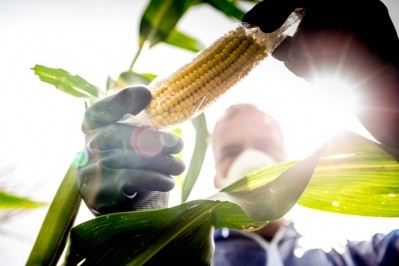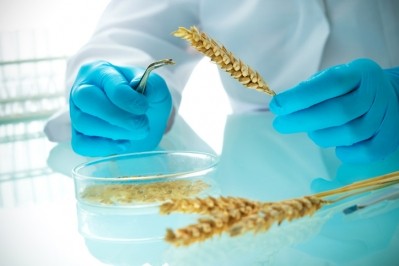New modified wheat ‘could help tackle global food shortage’

The UN Food and Agricultural Organisation says we need to increase food production by around 50% in the next 15 years to meet demand owing to a growing global population. The research community is focussing its efforts on increasing the yield of crops – mainly wheat, one of the most important food crops in the world, providing 20% of human calories -- on the existing land that we have to avoid further ravaging the world’s natural resources.
But since the ‘green revolution’ of the 1960s, the rate of yield increase has been slowing and is currently less than 1% per year.
The problem is that while most improvements have been made by breeding varieties that produce higher numbers of grain, it should also be possible to increase yield by producing plants with bigger grains. When this has been achieved, however, it is accompanied by a decrease in grain numbers.
Step in researchers at researchers at the University of York, who claim they have now solved the problem by directly modifying the growth of the young developing grain by increasing the amount of a protein that controls growth rates in plants.
Professor Simon McQueen-Mason, from the University of York’s Centre for Novel Agricultural Products (CNAP) at the Department of Biology, said: “Experts predict that we need to increase global food production by 50% by 2030 in order to meet demand from population growth. The negative impacts of climate change on crop yields are making this even more challenging. While researchers are working hard to meet this challenge, there remains a lot to do.
“Attempts to increase the yield of wheat have been thwarted by the apparent trade-off between grain size and grain number. We decided to side-step this complex control system by giving a boost to the natural growth system that controls the size of plant tissues.
“We did this by increasing the levels of a protein called expansin, which is a major determinant of growth in plants. We targeted this modification so that it was confined to developing wheat grain, and are delighted by the results.”
McQueen-Mason told FoodNavigator that if adopted, the modification technology could allow more wheat to be produced per hectare, thus reducing the need for further expansion of agricultural land. It could also increase farmer income, he said, and could also potentially benefit any crop, where the product is seed or grain.
Reigniting the debate around GM food
However, he also expects the technology to stoke the debate around GM crops. The EU, for one, is infamous for its anti-GM stance, which has historically reflected concerns expressed by sceptical consumers, farmers, and environmentalists. But the idea that GM crops are just one of the many technologies that will need to be part of the solution to the challenge facing agriculture in the coming years is one gaining traction among the research community and in the food industry.
A report last year from the UK’s Agricultural Biotechnology Council (ABC), for example, blasted the EU, stating that crop protection products are now “rapidly being lost to a European regulatory system that is unscientific, based on hazard rather than risk and driven by an inappropriate interpretation of caution.”
Argentina is at present the only country where a GM wheat line has been approved for growth, and most countries, McQueen-Mason believes, do not want GM wheat due to public perceptions.
But these perceptions are wrong, he insisted. “There is a small and vocal group of reactionary environmentalists, who believe that GM is either wrong or dangerous. But GM crops have been grown widely around the world for more than 20 years and the products are used in animal feed in most nations and in the clothes (cotton) we wear. There have been no reported deleterious impacts from this long-term trial on either human and animal health, or on the environment. Environmental impacts are positive, due to reduced reliance on broadcast pesticides, for example.”
Neither has he any concerns his breeding technique could negatively impact human and animal health. “We have simply reshuffled a single gene already present in wheat.”
So, what’s next? The team are now looking at ways to make this research accessible to farmers and the wider industry to help inform their decisions on crop production.
The method “should be readily transferable to other seed crops, such as soy, which is commonly GM, but this will take time too,” McQueen-Mason said. “We plan more extensive trials and are looking into other crops in discussion with crop breeding companies.”


























